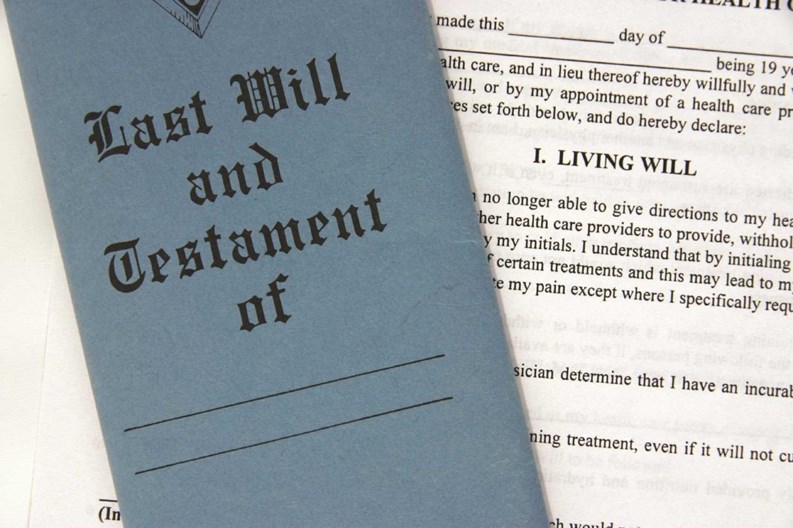In this world, nothing is a certainty but death and taxes. So how does a co-op or condo owner prepare for the certainty of death, as it relates to ownership interest and protect the asset for inheritance and possession purposes? Likewise, how does a board of directors exert control over who ultimately owns—as well as resides in—the apartment when a shareholder or deeded owner dies? One might think that it’s simply a matter of looking at a will to determine both ownership and possessory interests, but nothing in the world of New York real estate is ever simple. The type of ownership interest and, in the case of a co-op, the terms of the proprietary lease are crucial pieces that must be unraveled in the inheritance and occupancy puzzle that follows the death of a shareholder.
New York permits different types of ownership interests: tenancy by the entirety (for a legally married couple), joint tenants with right of survivorship, and tenants in common. In the cases of tenancy by the entirety and joint tenancy ownership, the other shareholder or owner automatically inherit the interest of the deceased owner. In the case of a tenant in common ownership, the decedent’s interest passes to his or her estate, and the terms of the will control the disposition of the property. If the surviving owner is already an occupant of the apartment or is a member of the immediate family or the spouse of the decedent, then possession should not be an issue of concern.
Complications often arise when the owner dies intestate or when a family member moves in after the death of the shareholder. A board should have rules and regulations in place to deal with these circumstances in order to prevent problems, complications and unnecessary litigation. There should be a fixed policy within the building that is adhered to when a shareholder or unit owner dies. The policy should be provided by the management company to the decedent’s representative within a reasonable period after the death of the owner. The policy should specify the estate’s obligations regarding maintenance payments, occupancy and, in the case of a co-op, how shares are transferred to the surviving spouse or heirs. If there is no movement on the part of the estate, either to resolve occupancy issues or to pay the accruing maintenance or common charges, within three months after the death of the unit owner, the board of directors should seek counsel to determine what legal steps, if any, must be taken.
A last will and testament may control the transfer of ownership, but it does not give an automatic right to occupancy of the apartment. If a shareholder or unit owner lived alone, then, under most circumstances, the heir cannot just move into the apartment after the death of the shareholder or owner. Typically, in the course of assignment of shares, the board has the right to approve the occupancy prior to the transfer. Yet, when it comes to an inheritance, the terms of the occupancy agreement will determine how much control the board has to approve the heir or whether or not the family member will have the right not only to own, but ultimately to occupy, the apartment.
Whether or not there is a will, a proprietary lease in a co-op will not terminate upon the death of an owner. Most cooperative boards permit family members to continue to occupy an apartment after the death of a shareholder, provided that they resided with the deceased shareholder prior to his or her death. But if the shareholder lived alone, no one can move into the apartment without permission of the board of directors. This includes the heirs, as well as the executor of the estate, whose sole purpose is to wind up the affairs of the estate, including removal of personal effects and sale of the unit. Maintenance payments continue to accrue, and the estate is liable for those payments. If someone occupies the apartment without the permission of the cooperative, the corporation may commence an action against the estate for a breach of the proprietary lease. Further, the cooperative cannot accept payment of the maintenance from anyone other than the estate of the shareholder, without risking an assertion of waiver, even if the proprietary lease states otherwise.
Another issue, which is frequently faced after the death of a shareholder, occurs when the shares are owned as tenants in common—or if the apartment was purchased prior to 1996 by a married couple who failed to designate themselves on the shares as joint tenants. The decedent’s interest passes to the estate and is inherited by the beneficiary in the will or by the next of kin. That may not be the co-owner of the shares—or even the spouse of the decedent. The surviving shareholder can be at risk of having to split the shares with other heirs, a situation that can lead to lawsuits, an unwanted buyout of the heirs or an unanticipated sale the apartment. It is important for shareholders to check their stock certificates to ensure that the shares are designated properly and that their wills are consistent with their posthumous wishes.
Condo owners face similar issues with regard to inheritance, but boards may have less flexibility over controlling who will live in these apartments after the death of the owner. Condominium boards should consult the house rules, as well as the bylaws, of the organization to determine protocol and whether or not a waiver of right of first refusal is needed when an owner dies and an occupancy issue develops.
As in any situation where legal questions arise, counsel should be sought to determine the rights and remedies of the parties, as well as the board’s obligations to the estate heirs. The management company should implement standard procedures that address the death of a unit owner in order to assist in the resolution of estate affairs—and to simplify what otherwise can be an arduous and thorny process.
Lisa Breier Urban is a Manhattan-based real estate attorney, a managing partner and one of the founders of Breier Deutschmeister Urban & Fromme.







12 Comments
Leave a Comment